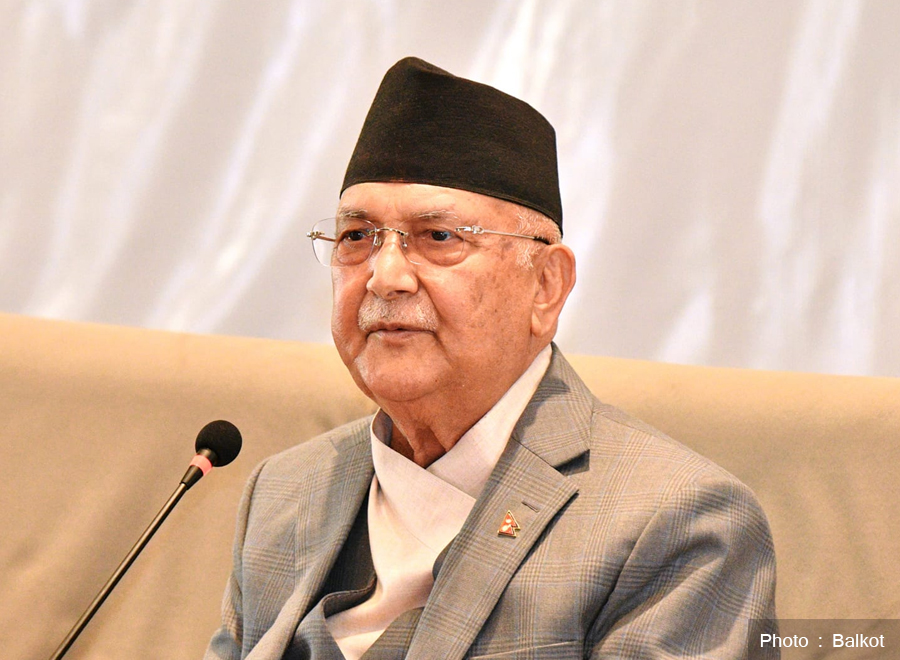GPFN calls upon the UN Security Council to monitor the Kalapani dispute between Nepal and India

London – The Global Policy Forum for Nepal (GPFN), a UK-based non-profit organisation, has called upon the United Security Council to monitor the Kalapani border dispute between Nepal and India and initiate preventive diplomacy in the region.

Photo : Press note by Civil Society Members, Nepal
In a statement issued on Thursday, the GPFN said a geographical map unilaterally released by the Government of India in November 2019 inaccurately portrays several Nepali sovereign territories in the far north-west area, specifically Kalapani, Lipulekh and Limpiyadhura to be inside the Indian border. “This in itself is not new, and such erroneous maps have surfaced before. However, the release of this new map only goes to show an aggressive Indian tone,” the statement said.
“Based on this historically factual premise, and accepting that this is not an isolated boundary line dispute between Nepal and India, Global Policy Forum for Nepal (GPFN) concludes that India’s unilateral act of publicizing the map without consultation with Nepal, and violating both the mutually agreed past treaty and that of international laws governing the means to resolve boundary disputes, is therefore void and illegal. We believe that an immediate correction of the maps by the Government of India is a necessary and a vital step in defusing the situation and safeguarding the cordial relations existing between the two sovereign states,” said Dr Surya P. Subedi, Professor of International Law at the University of Leeds and Chairman of the GPFN.

“GPFN is willing to offer its support to both countries in finding a mutually agreeable resolution on the basis of historical evidence and the norms of international law to this and another major border dispute at Susta in the Lumbini region of southern Nepal,” Prof Subedi said.
The repeated infraction and the additional commentary by a spokesperson for the Indian Ministry for External Affairs (Raveesh Kumar, New Delhi, 7th November 2019), stipulating that the map “..accurately depicts the sovereign territory of India” continues to cause considerable disquiet amongst Nepalis including those in the diaspora. Multiple wrongs do not and should not be allowed to make a right, the GPFN said.
The territorial boundary of the said area was settled during the colonial time by the 1816 Sugauli Treaty (specifically Article 5) between independent Nepal and the then colonial India under the British East India Company. The modern treaty arrangements between the two countries have acknowledged the boundary set by the Sugauli Treaty. According to the basic principle of international law, any changes of borders are subject to mutual consultation between the neighbouring states,” the statement said.
“We urge both the Governments of Nepal and India to approach this issue with mutual respect and trust through normal bilateral diplomatic channels. This necessary endeavour should also attempt resolution of the numerous border encroachments that continue to fan the increasing frustration and anger amongst the Nepalis living along the affected border areas,” the Global Policy Forum Nepal said.
“Furthermore, whilst acknowledging that mutually accepted and stable national boundaries lay the very foundation for neighbourly peace and stability, GPFN echoes the sentiments of all Nepali citizens in its concern with India’s continued militaristic presence in Nepal’s far-north-western area. GPFN would also urge the UN Security Council to monitor the situation and initiate preventive diplomacy in the region,” the Forum said in its statement.
The Global Policy Forum for Nepal (GPFN) aims to provide independent, objective, impartial and non-partisan policy advice on issues affecting Nepal and its citizens with a particular focus on human rights, education, and law, the statement said.
















Facebook Comments